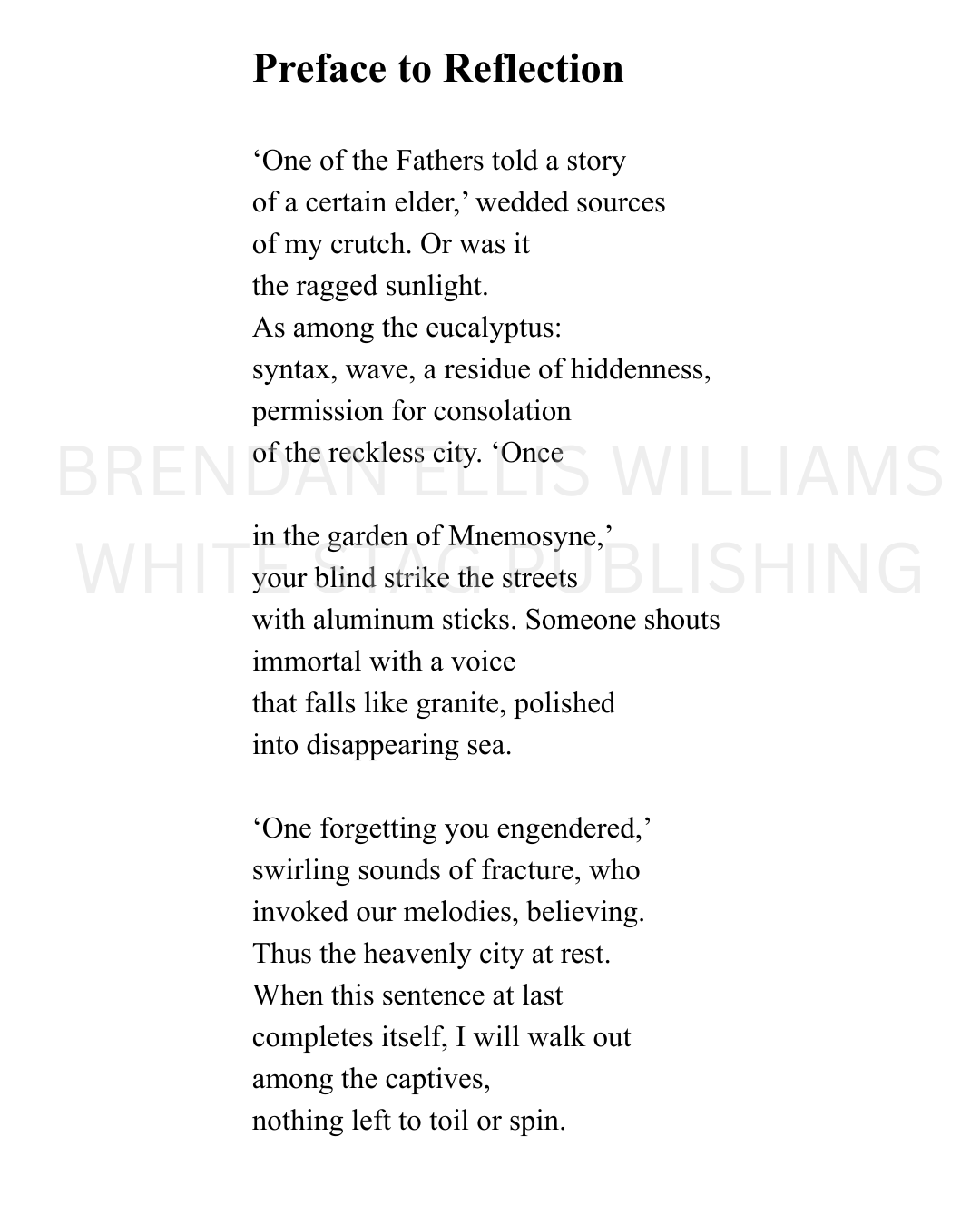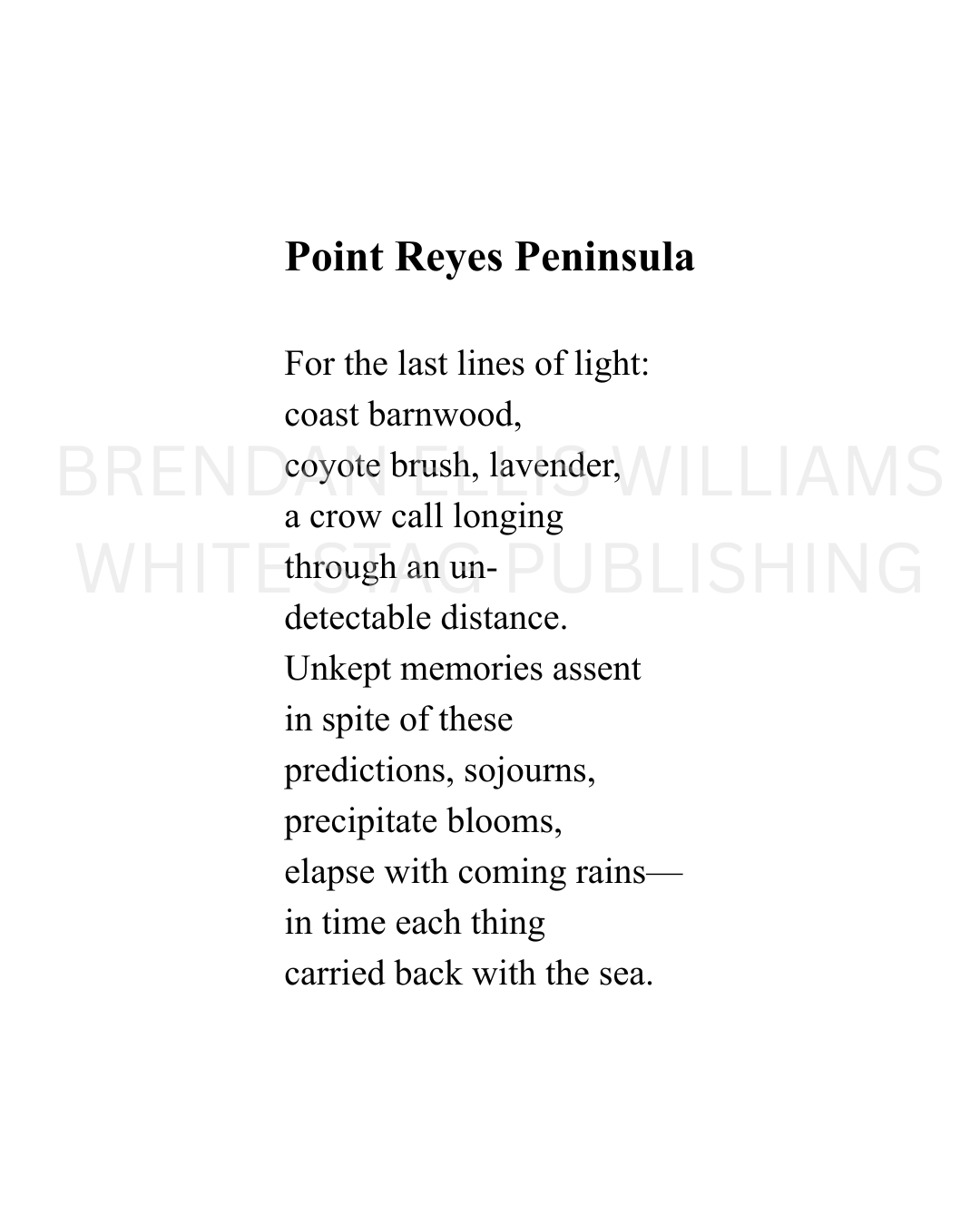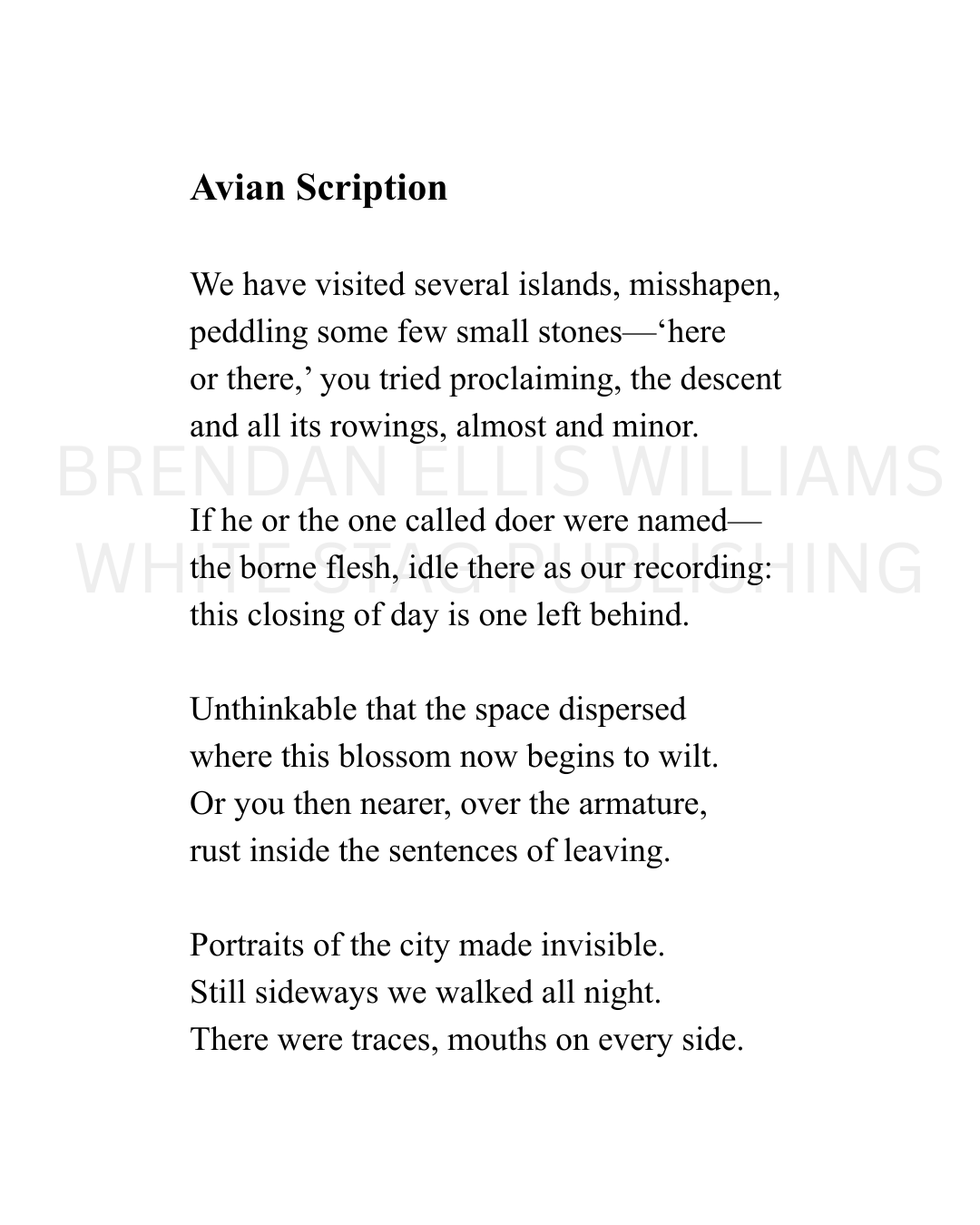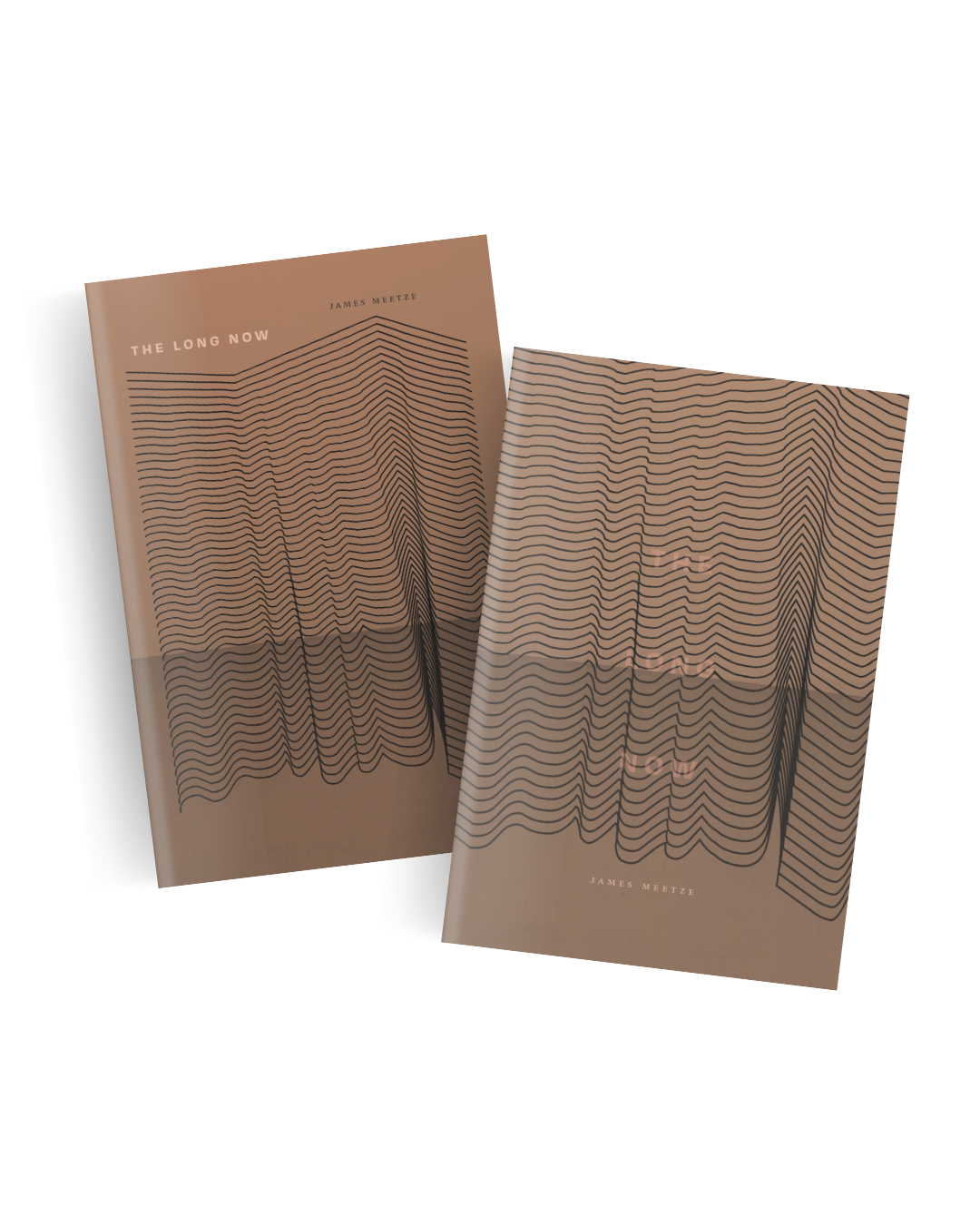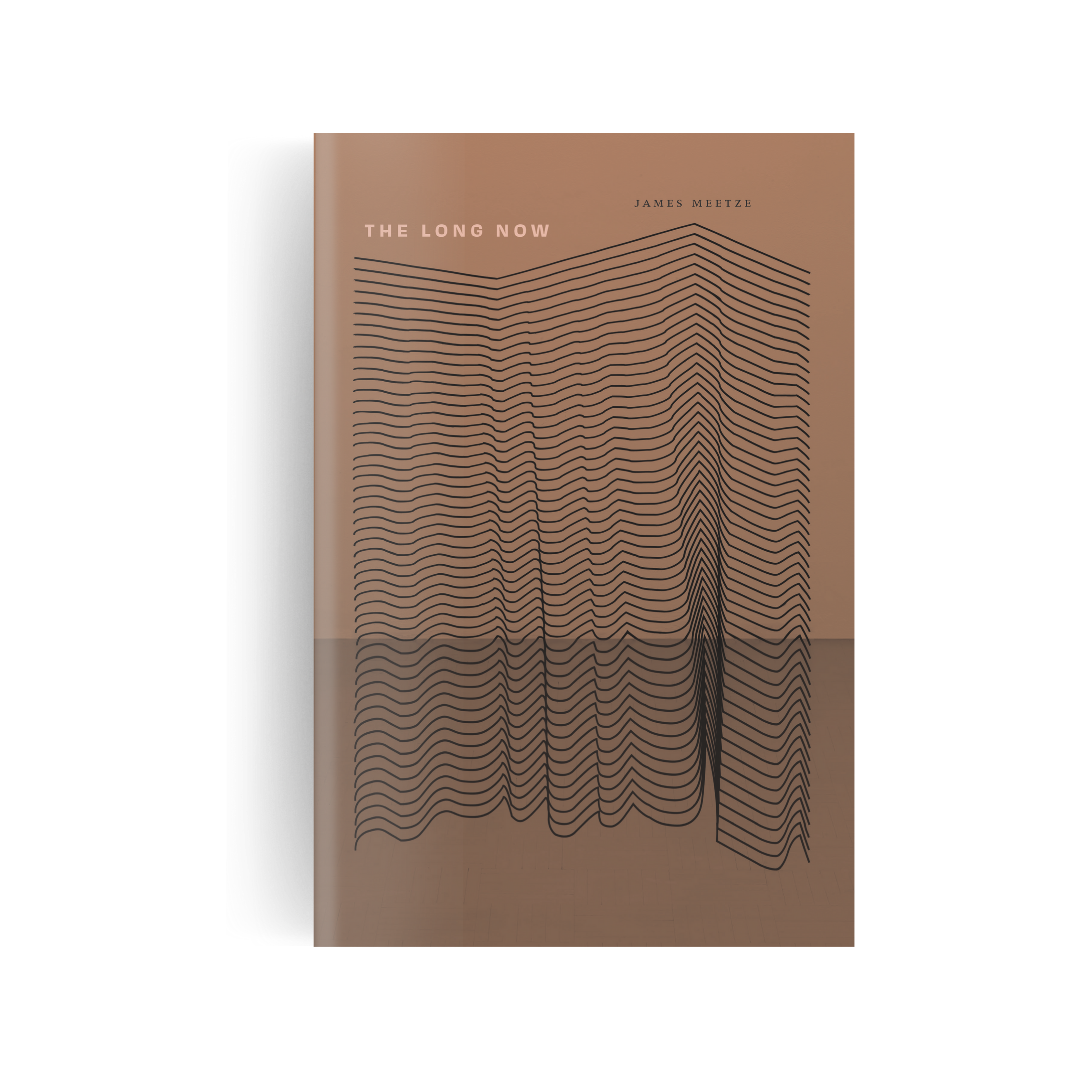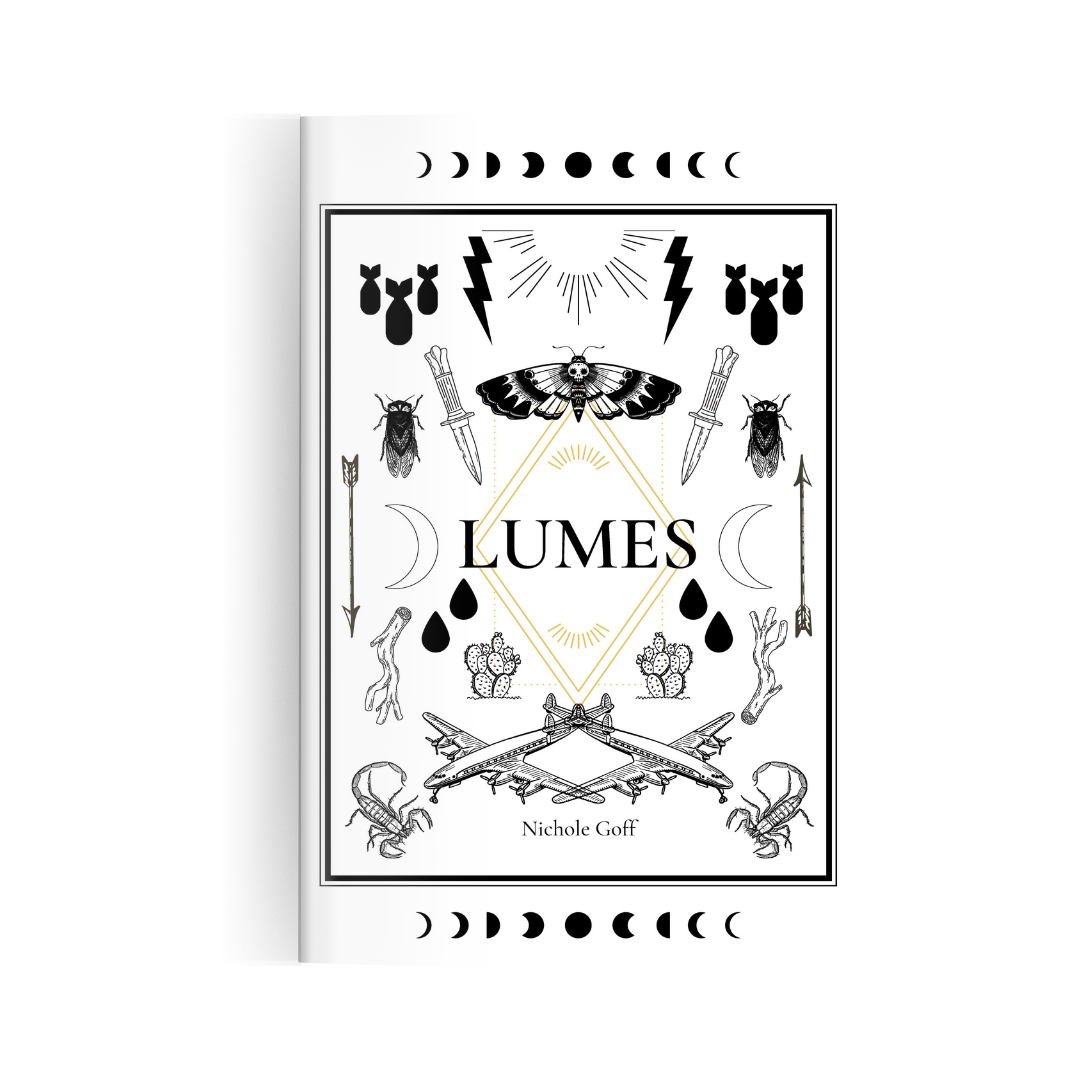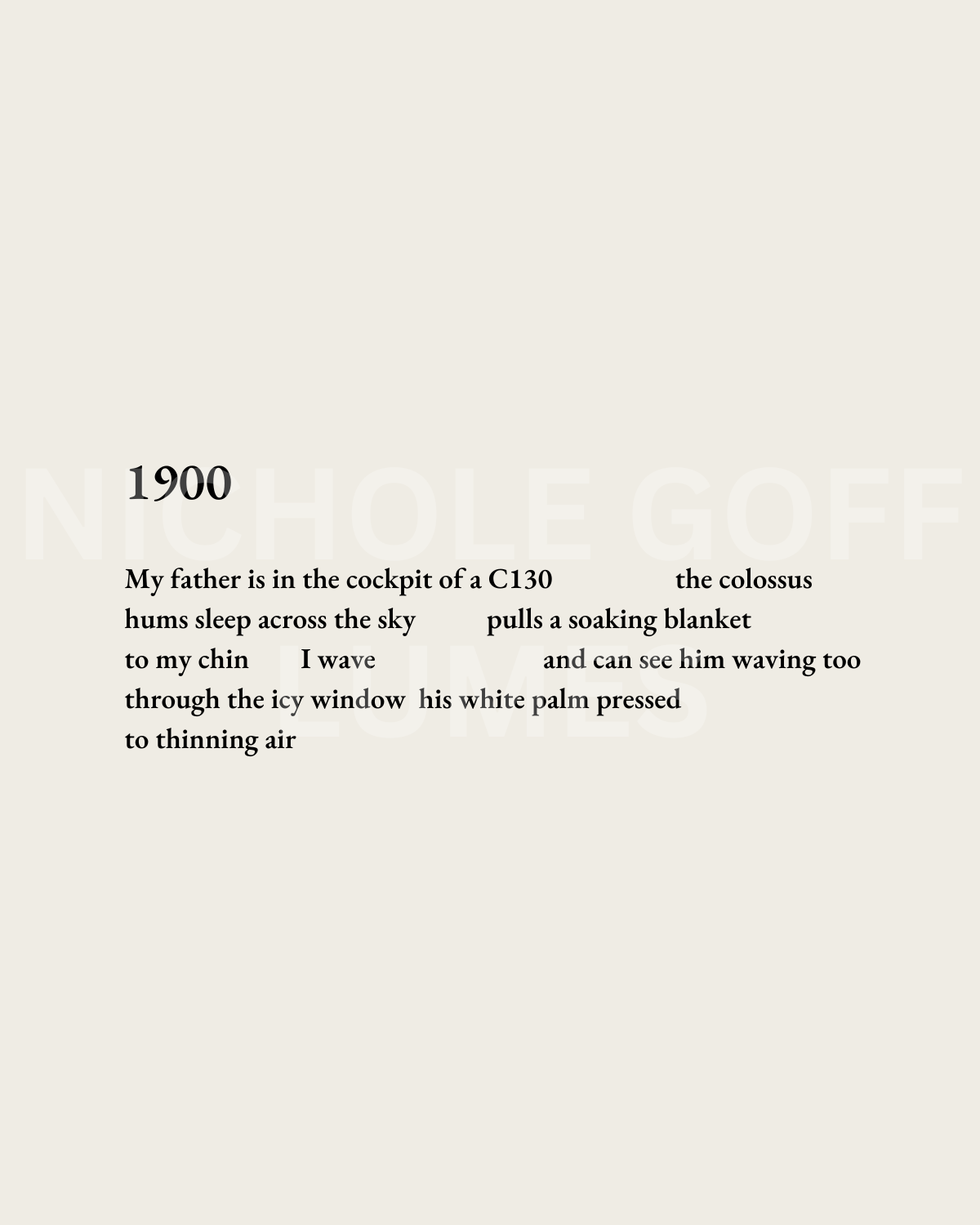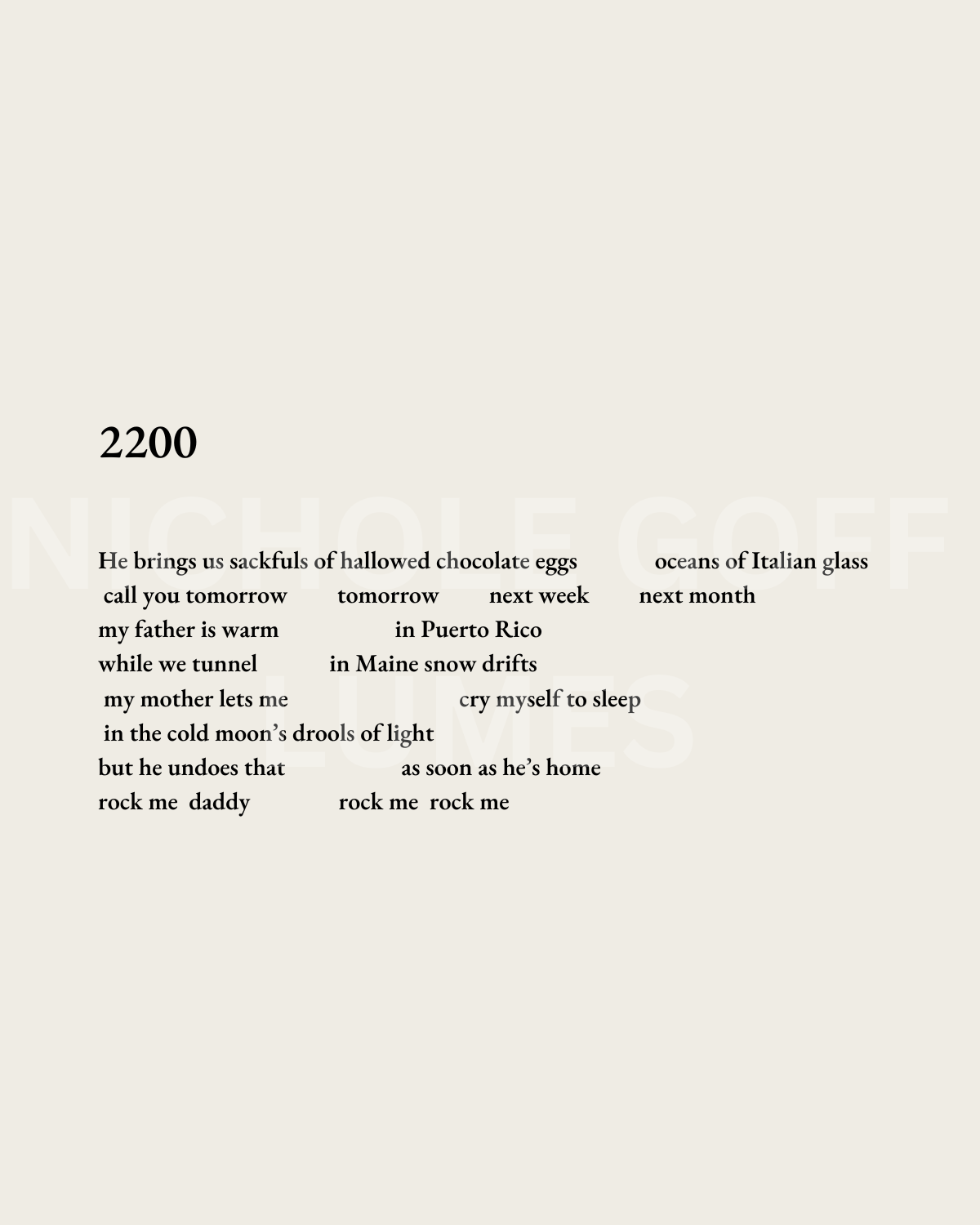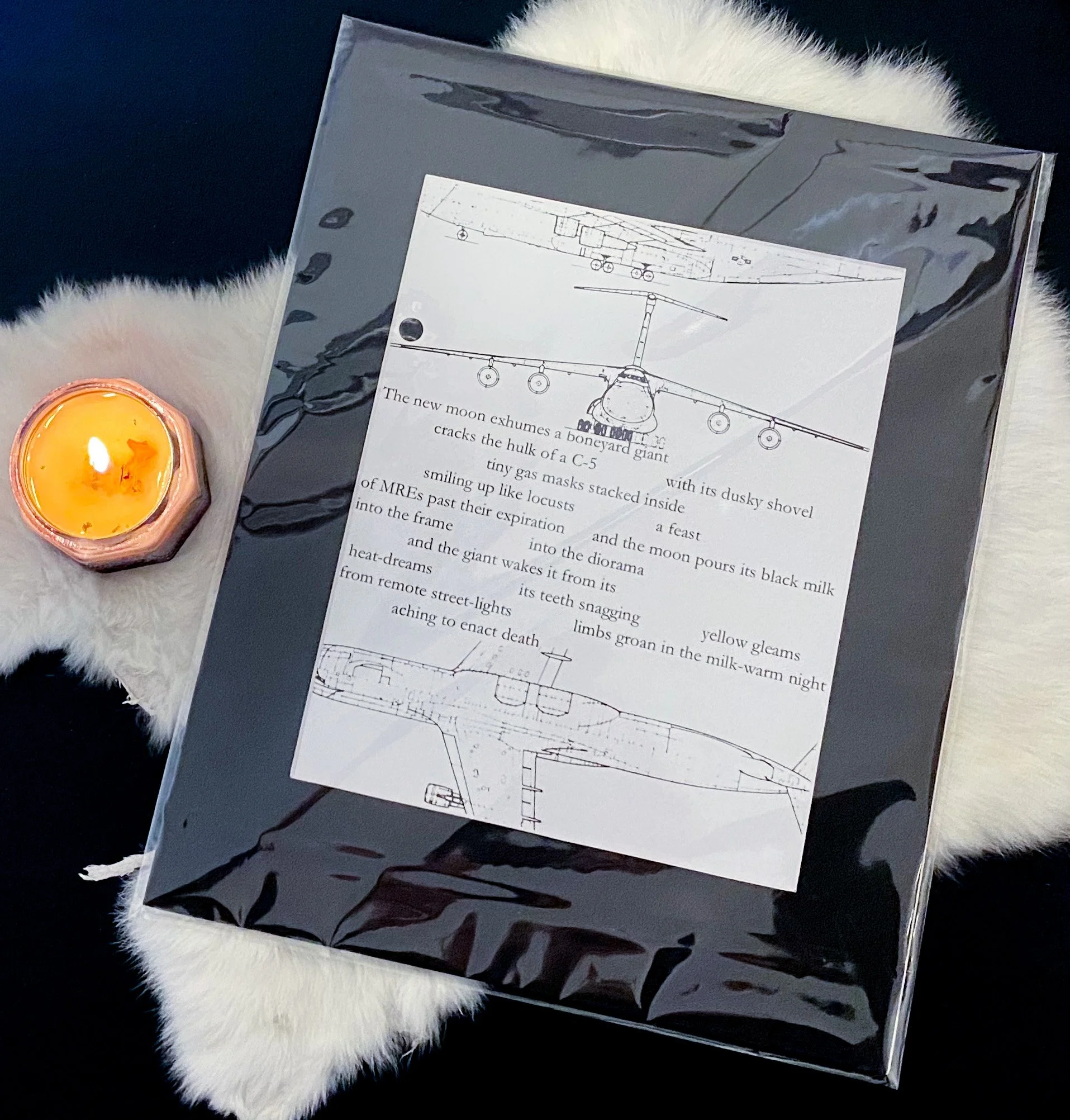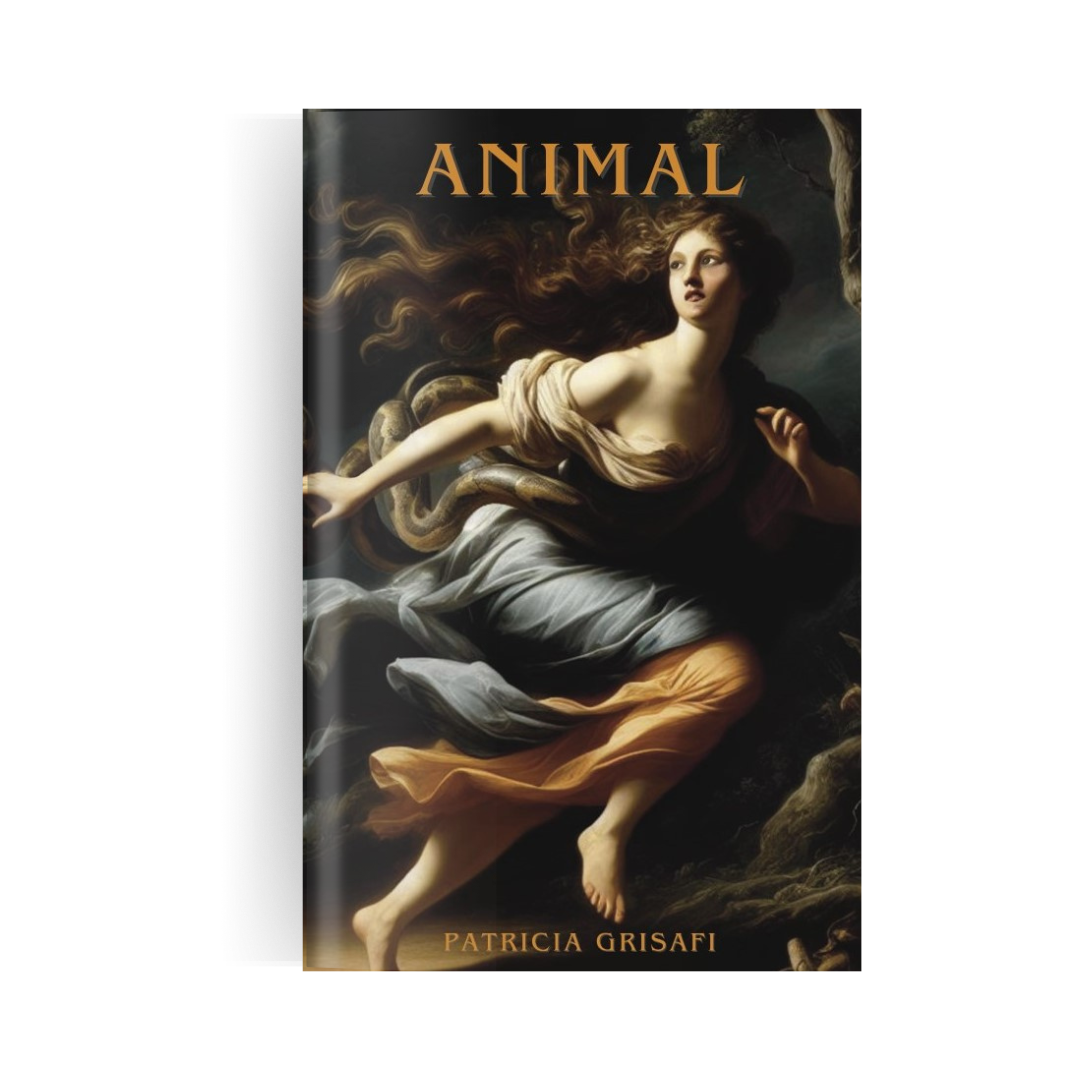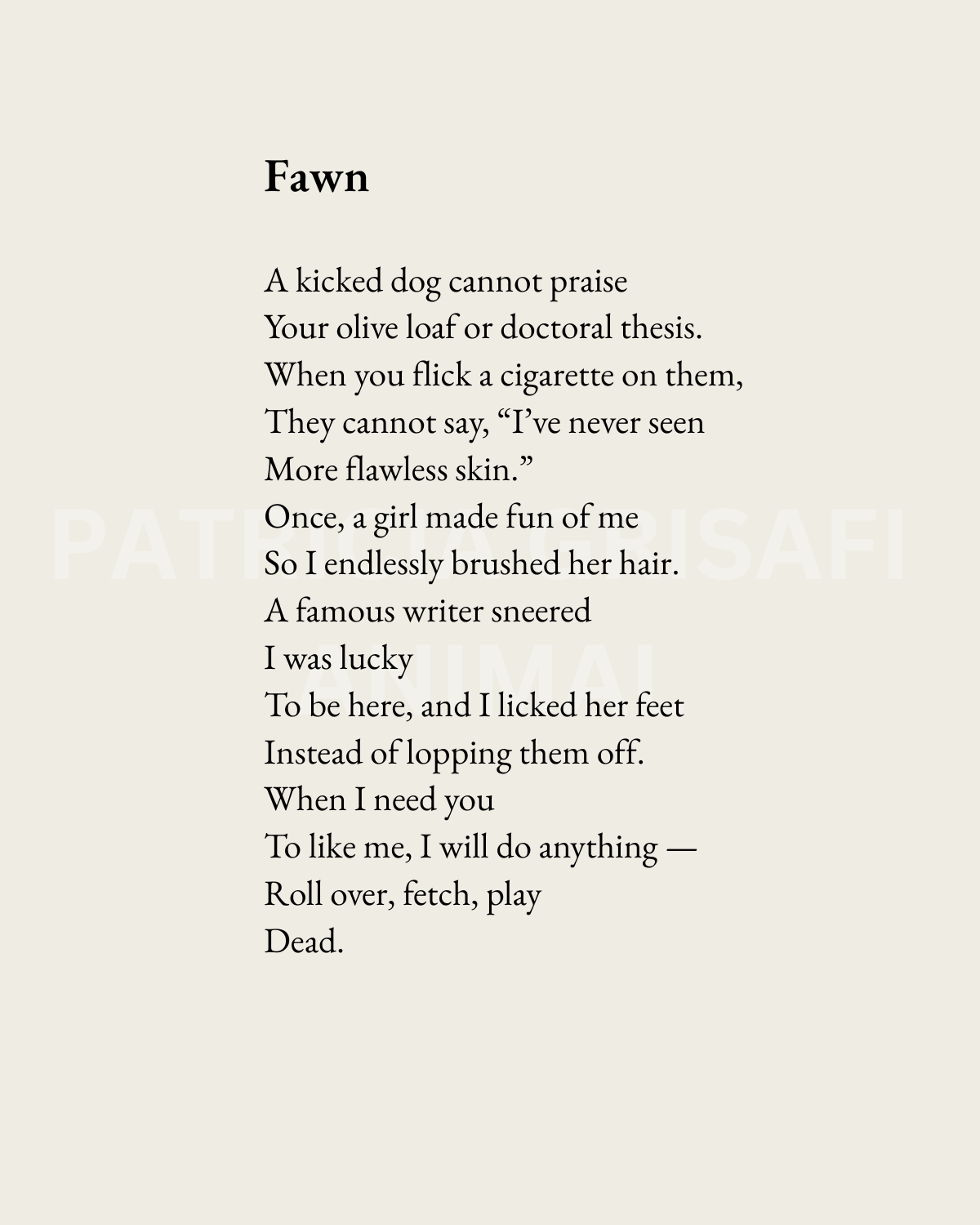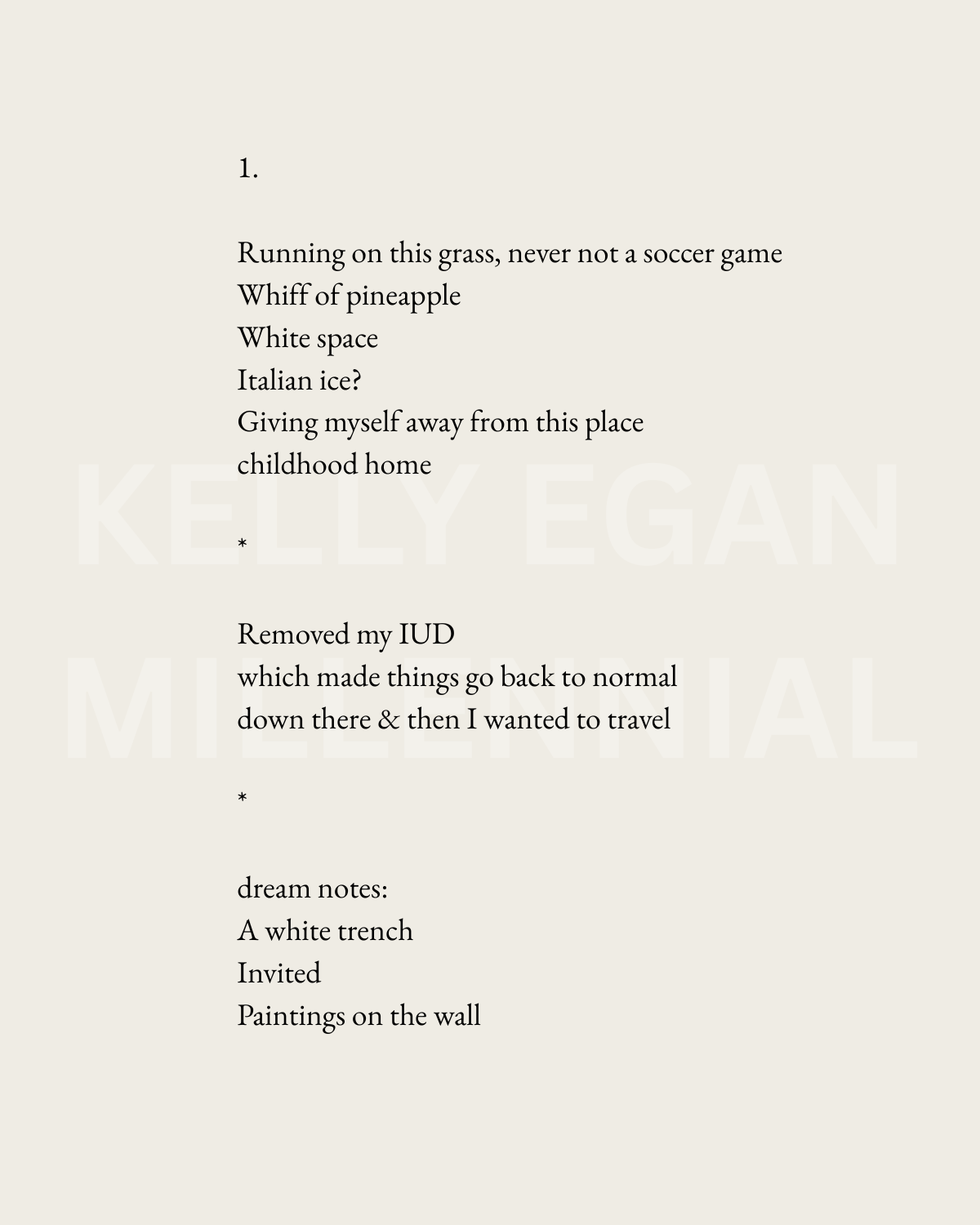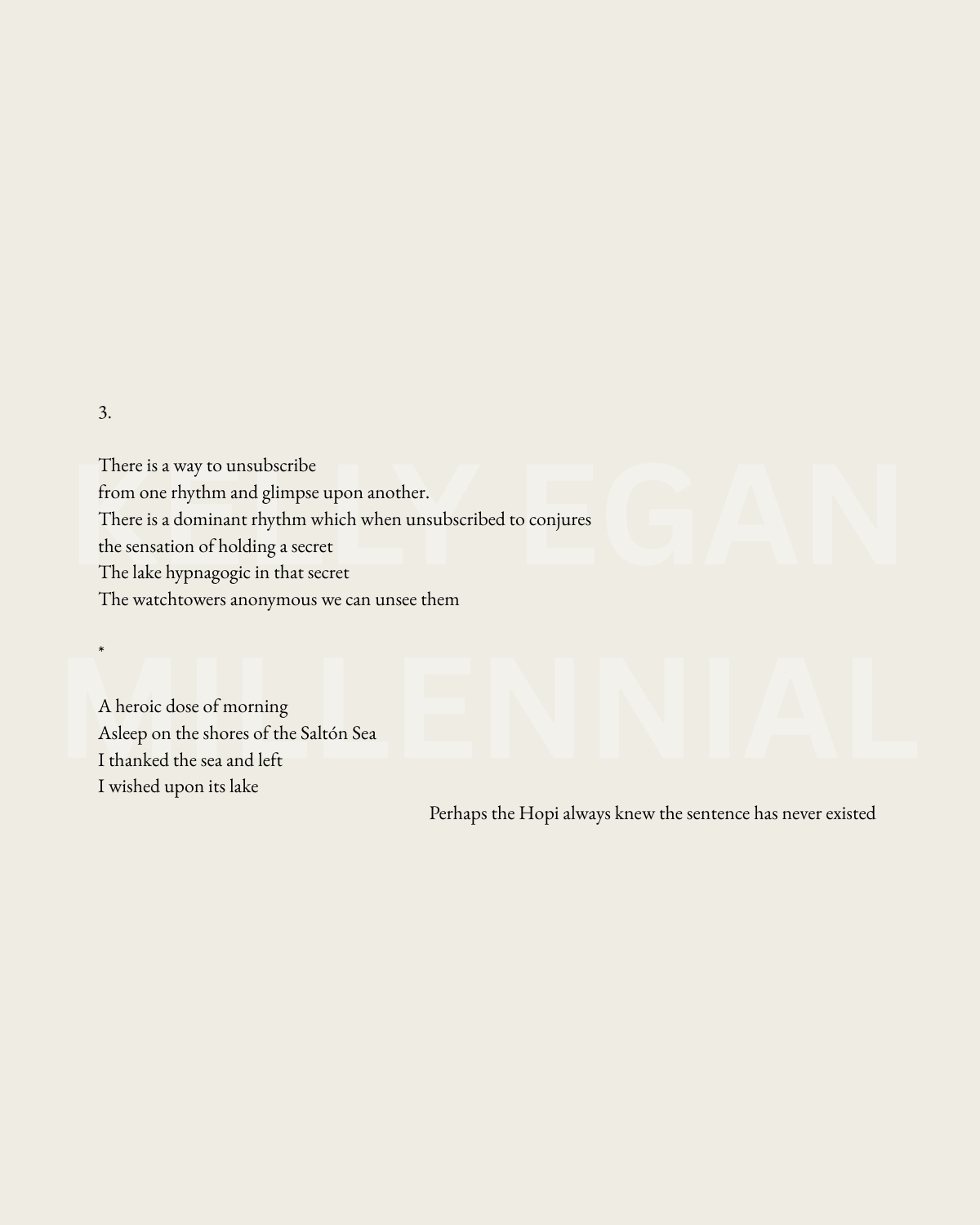“VESTIGIA” Pre-Order Set
Reserve your copy of “VESTIGIA” & receive an exclusive ritual bundle for deepening your reading experience. *ALL PRE-ORDERS WILL SHIP IN DECEMBER.
Along with the book, this set includes a bendable beeswax candle to accompany your reading symbolizing clarity & creation, & an incense stick made with Frankincense chosen to echo the atmosphere of the poems. Each books is wrapped with black kraft paper & twine.
“Taxonomy of Mirage” Soy Wax Candle by Marvel + Moon
Comes in a 3oz tin
The scent of this candle is both archaic & luminous, evoking the mystery of forgotten landscapes & ancient voices. Its fragrance layers earthy Frankincense with warm Amber & deep, resinous Oud, sweetened by Tonka & hints of Honey. It is adorned with tears of Frankincense resin & a mini parchment scroll, echoing the book’s themes of excavation & arcane knowledge. Light it as companion to your reading or as a ritual object to steep your space in poetic stillness.
SCENT NOTES: Frankincense. Amber. Oud. Tonka. Honey.
ADORNMENTS: Frankincense Resin. Mini Parchment Scroll.
*Ritual candle sold separately.
QUOTES ABOUT THE BOOK:
[T]hese poems…rise peaty and trailing dirt of past languages and sounds, their hymns resounding through eons and roaring to life again. There’s nothing vestigial about Vestigia. It's all essential, as in, of the essence: the essence of English, the essence of languages, both human and divine—and here in these words those two are the same.
—Kazim Ali, author of Sukun, Bright Felon, and Inquisition
In Vestigia, Brendan Ellis Williams invites us on a quest which “never suffered a fool. Its initial act / takes place in an archival breast.” We encounter an apocalypse of collapsing time, where the deeply ancient, the classical, and the modern blur and echo each other. These poems, “containing little breaths of time,” reflect grief, knife-sharp spirituality, and witty aestheticism, expressed in language equally experiential and cerebral. Perhaps most critically, Vestigia insists on the value of record, of memory, of the beauty and blood of the past and present. These poems offer the gift of complexity and truth, shot through with delicate hope: “There is a map, we believe—and a way in which it is someday found.”
—Katrina Greco, author of Everywhere Green and Scorch Marked
By turns a book of ancient hymns and a newly unearthed grimoire, Brendan Ellis Williams’ Vestigia is both and neither; rather, it proceeds toward a visionary animist syncretism. Divining from the lexicons of myriad wisdom traditions, it sings a novel syntax into the chôra—the emergent space between form and becoming—where the poem performs its own ontology. These poems dwell in the liminal while naming the familiar, holding the tension between spirit and matter. If “there is a dream in which every thing comes to life again,” these are its transcriptions—a re-membering of vestiges long since dismembered. Here, the poet’s aim is to write the numinous, to say the unsayable, even if ‘The end is not expressible.’ And yet, Williams reminds us, “The gods were once like us.”
—James Meetze, author of The Long Now, Phantom Hour, and Dayglo

